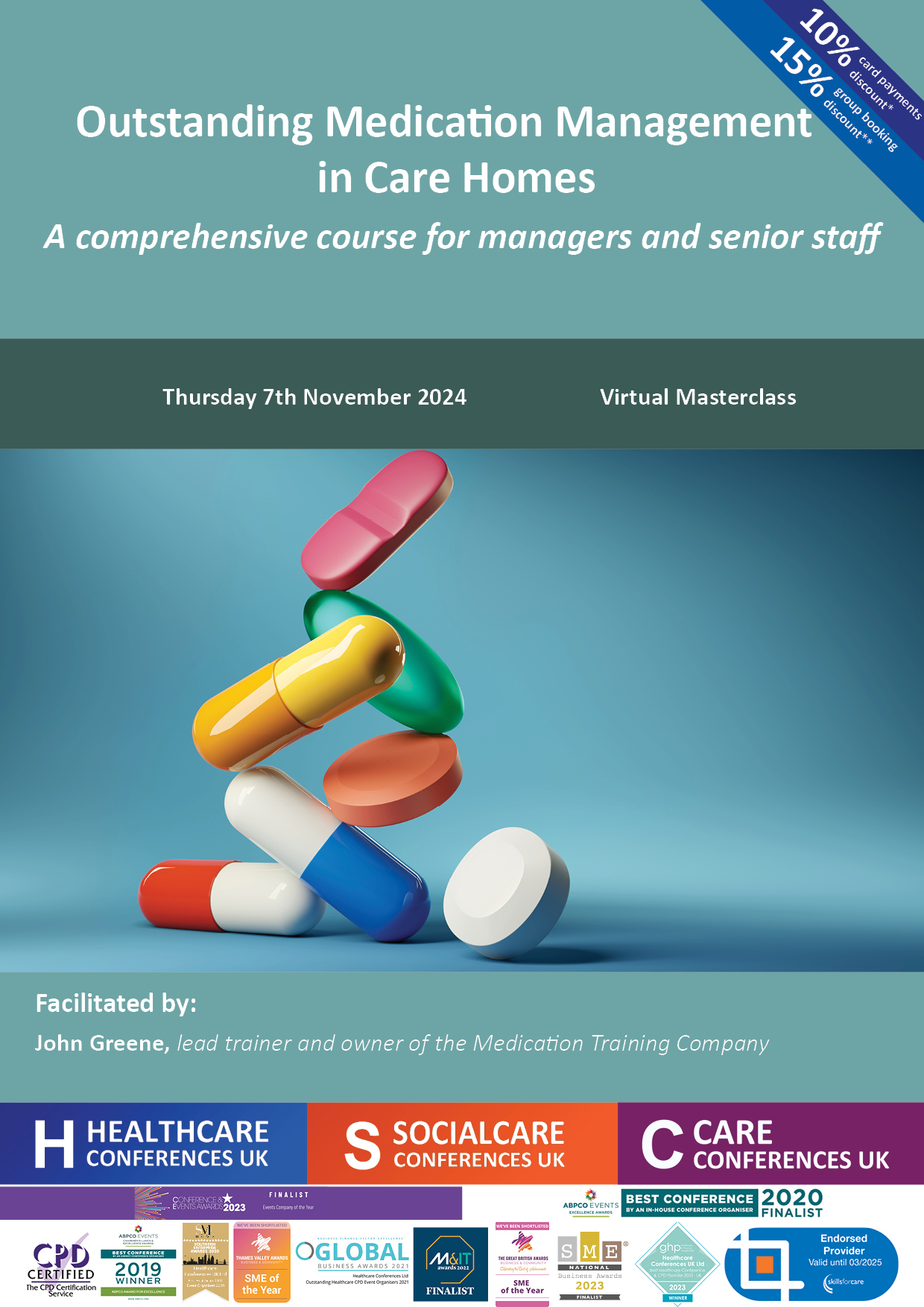In this workshop, you’ll learn how to ensure that you, and your staff, are managing medicines correctly so that those you support are safe. You will also be introduced to a targeted in-depth audit tool that will help you meet and exceed the latest regulatory and best practice requirements to gain top ratings from the CQC.
This workshop is split into two parts:
1. How to manage and reduce the risk from medication errors
Managing medication errors is a challenging part of anyone’s role, but by trying to reduce medication error numbers alone, that’s the wrong approach. Errors are your opportunities to learn and to improve; you need this data to learn. Therefore, you need to encourage reporting, and, counterintuitively, with success reported incidents might even go up.
But your key metric is to measure the harm they cause and see this go down.
This course will teach you how to manage, report, and learn from medication incidents. It will enable you to provide the correct response to Safeguarding Teams and the Care Quality Commission. It will also enable you to reduce the chance of harm from medication incidents occurring by learning from them.
2. How to attain and maintain top ratings from CQC for managing medicines
We’ve examined over 100 CQC reports to see which areas CQC currently target when inspecting medicines. We’ll see how others have achieved Good / Outstanding in their inspection reports, ensuring you meet all legal and best practice responsibilities.
We’ll also provide you with an in-depth medicines audit tool developed and field tested over many years. It provides a deep dive into your medication management processes to ensure that you attain and maintain high inspection results.
WHO SHOULD ATTEND
Managers and senior staff who manage medicines in care homes and other social care settings.
FACILITATOR
This workshop is led by John Greene: a registered pharmacist with over 30 years’ of experience. John is the lead trainer and owner of the Medication Training Company. Since 2004, John and his team have supported more than 25 local authorities and hundreds of private care providers, with consultancy, medication policy writing, audits, and training. John has also authored 5 books on the subject.



